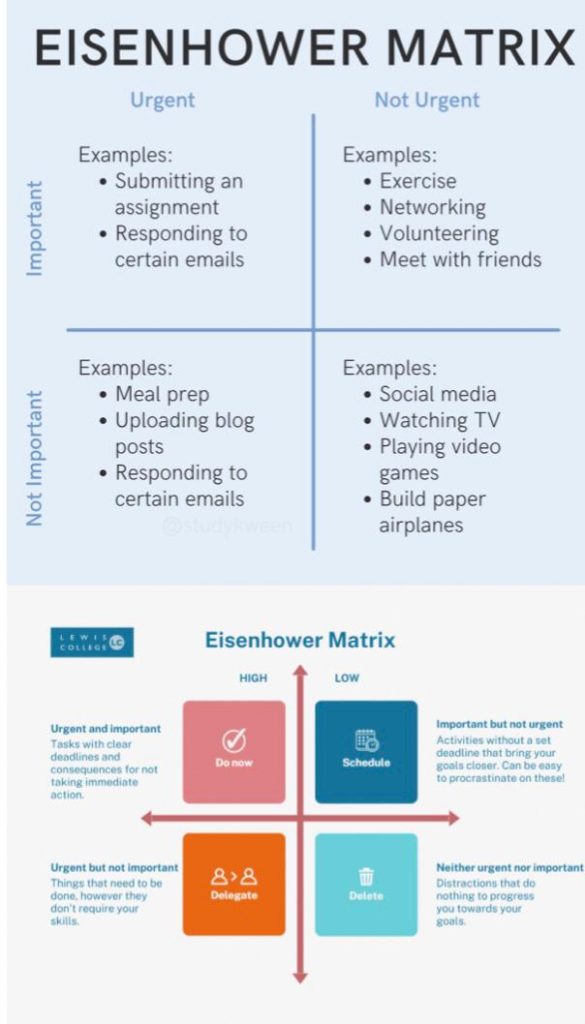Seun Ezra
The struggle to balance academics and personal life is a universal challenge faced by almost all students. It can be a particularly challenging time for many, as they navigate the pressures of academics, social life, and personal expectations.

Understanding and addressing mental health is vital for students. The pressure to excel academically can be overwhelming. With lectures, assignments, exams, and the constant drive to improve, it is easy to neglect personal life and well-being.
However, finding a balance between academics and personal interests is very important for long-term success and achieving goals. Balancing academics and personal life is an ongoing challenge that requires effort and adaptability.
Before delving into tips and strategies on how to balance both, it’s essential to recognize why balancing your academic and personal life is vital.
Excessive focus on studies can lead to burnout, stress, a decline in mental health, and a lack of social skills. Engaging in personal interests and social activities can enhance creativity, improve mood, boost social skills, and provide a necessary escape from the rigors of academic life. By prioritizing both areas, you will set the stage for a well-rounded and fulfilling college experience.
Tips to help you navigate this challenge effectively include:
1. Set Clear Priorities
Setting clear priorities involves identifying what is most important to you and allocating your time and resources accordingly. It helps you focus on tasks that align with your goals and values, reducing stress and increasing productivity.
Every student has different priorities based on their goals, responsibilities, and interests. Begin by identifying what matters most to you. Is it achieving high grades, completing assignments, participating in social activities, or spending time with family and friends? Once you have a clear understanding of your priorities, you can allocate your time and energy more effectively without feeling overwhelmed.
How to set clear priorities:
Identify Your Goals:
Start by reflecting on your short-term and long-term goals. These could be academic aspirations, career objectives, or personal development.
Make a List of Your Responsibilities: List all your current commitments and responsibilities, both academic and personal.
This may include attending classes, completing assignments, studying for exams, participating in extracurricular activities (e.g., press club meetings, final-year projects), and maintaining social relationships (e.g., calling parents and siblings).
Use the Eisenhower Matrix: The Eisenhower Matrix is a helpful tool for categorizing tasks based on urgency and importance. Divide your tasks into four categories.

Setting clear priorities is an ongoing process that requires self-reflection and adaptability. By identifying your goals, assessing your responsibilities, and utilizing tools like the Eisenhower Matrix, you can ensure that you focus on what truly matters.
2. Create a Realistic Schedule
Time management is crucial for balancing your responsibilities. Create a weekly or monthly planner that includes:
Class Schedules: Note down your lecture times and locations.
Assignment Deadlines: Keep track of due dates for projects, essays, and exams.
Personal Time: Schedule breaks for social activities, hobbies, and relaxation.
Use digital tools like Google Calendar, to-do lists, or mobile apps to set reminders for important tasks. The key is to be realistic about how much you can accomplish in a day, ensuring you leave room for both academic work and personal life.
3. Stay Organized
An organized workspace can significantly impact your productivity. Keep your study area tidy and free from distractions. Use folders, binders, or digital tools to organize your notes and assignments. An orderly environment promotes a clear mind, allowing you to focus better on your academic work.
4. Include 5-Minute Breaks in Your Routine
Continuous: Studying without breaks can lead to fatigue and decreased productivity. Schedule regular breaks during study sessions. Use this time to engage in activities you enjoy, such as reading, exercising, or socializing. A well-timed break can boost your concentration and prevent burnout.
5. Maintain Social Connections
Maintaining social connections is vital for emotional well-being. Make time to connect with friends and family, even if it’s just a quick phone call or a study session together. Friendships in school can feel like family bonds. You meet people who understand your struggles, laugh with you at 2 a.m., and keep you grounded when things get tough. Participating in school activities or clubs can also provide a sense of community and help you develop valuable friendships.
6. Prioritizing Self-care
Taking care of your physical and mental health is essential for achieving balance.
Consider these self-care steps:
Get Enough Sleep: Aim for 7–9 hours of quality sleep each night. Sleep is crucial for cognitive function and overall health.
Eat Healthily: Fuel your body with nutritious meals. A balanced diet can improve focus and energy levels.
Stay Active: Incorporate regular exercise into your routine. Physical activity boosts mood and reduces stress.
7. Seek Support When Overwhelmed
If you’re feeling overwhelmed, don’t hesitate to seek support. Reach out to friends, family, or school counseling services. Talking about your struggles can provide clarity and help you find solutions to manage your workload and personal life more effectively. Remember, a problem shared is a problem halved.

Conclusion
Balance is not a one-time achievement; it’s an ongoing process. Regularly assess how well you’re balancing your academic and personal life. Reflect on what’s working and what isn’t. Be willing to adjust your schedule and priorities as needed to ensure you’re meeting your goals in both areas.
Balancing academics and personal life as a student is undoubtedly challenging, but it is essential for overall success and well-being. By implementing these tips and being mindful of your needs, you can create an amazing experience that fosters both academic achievement and personal growth.
Remember, it’s not just about getting good grades; it’s also about enjoying the journey and making the most of your time on campus.





Striking Balance Between Academics, Personal Life – Mapolypressclub
almljhhirh
lmljhhirh http://www.gxgpij0ed9451kefw34i13523225dk0xs.org/
[url=http://www.gxgpij0ed9451kefw34i13523225dk0xs.org/]ulmljhhirh[/url]